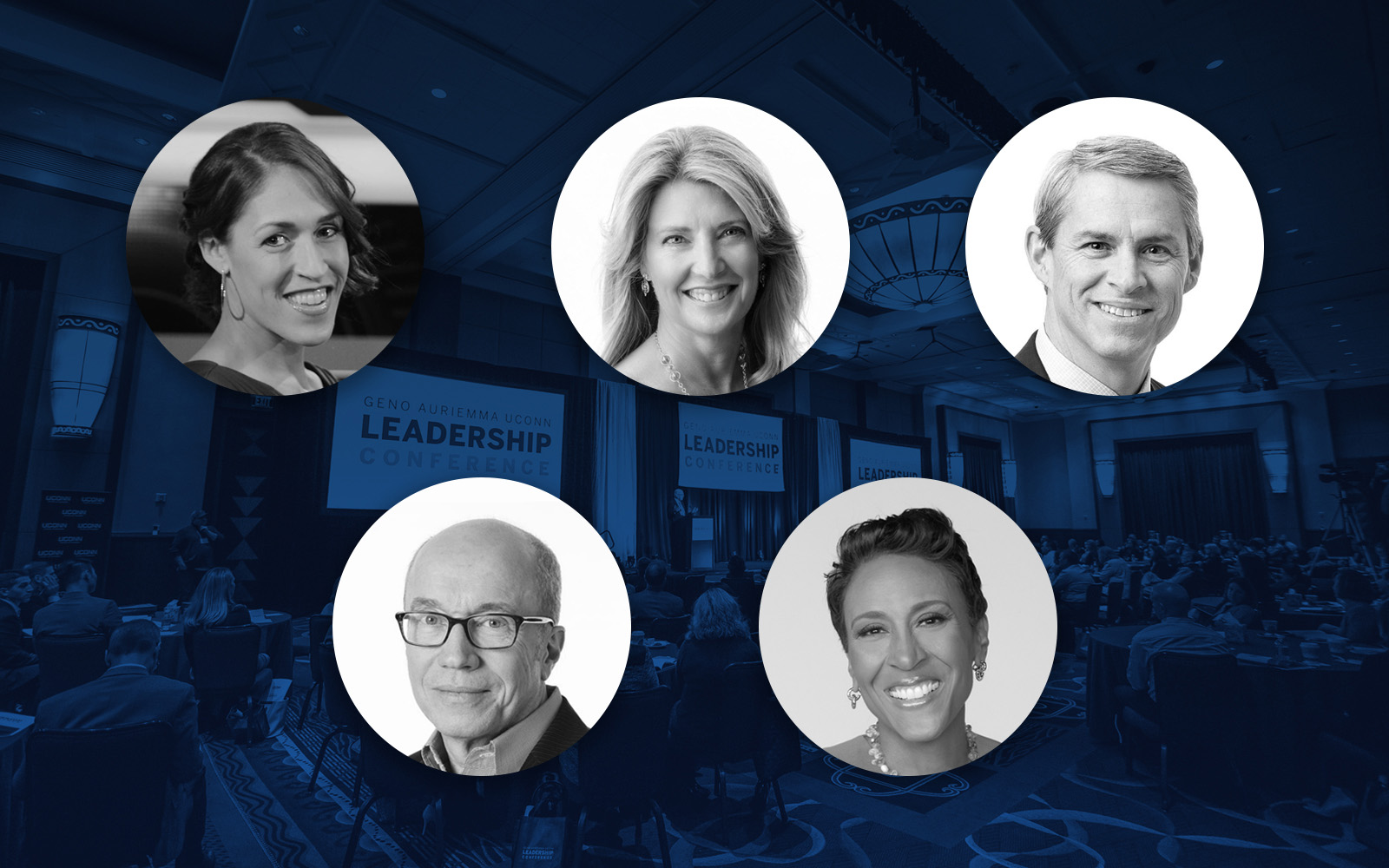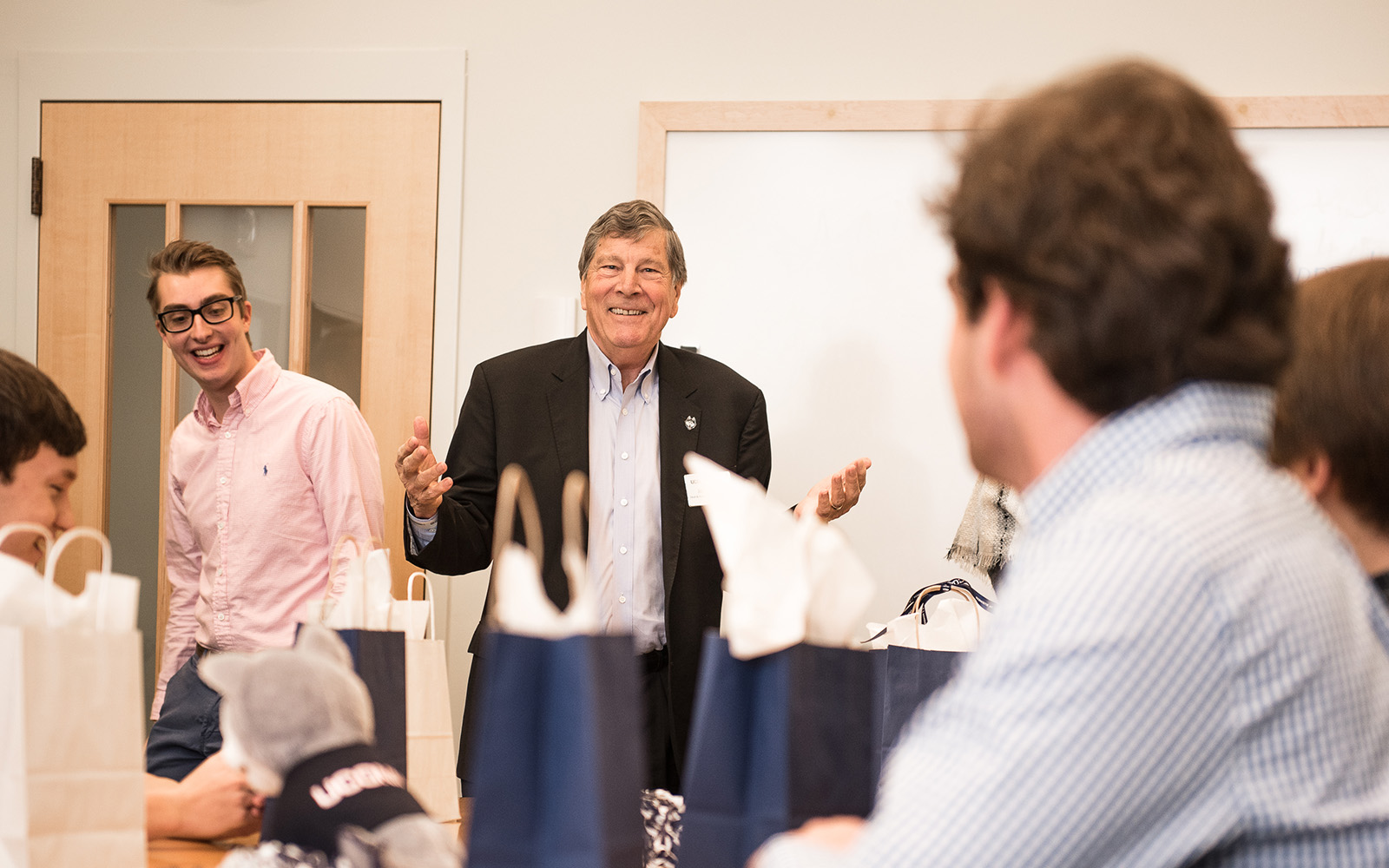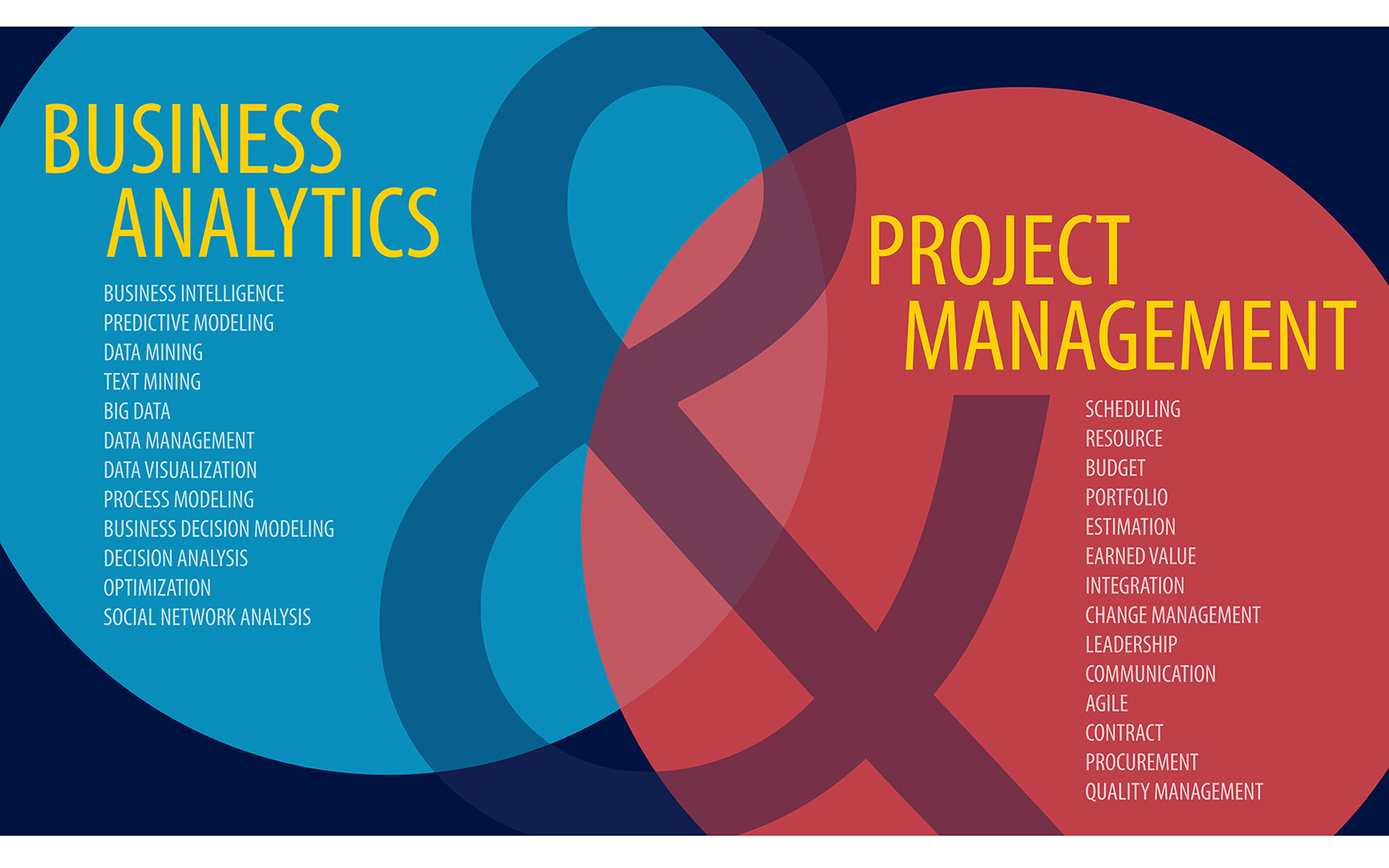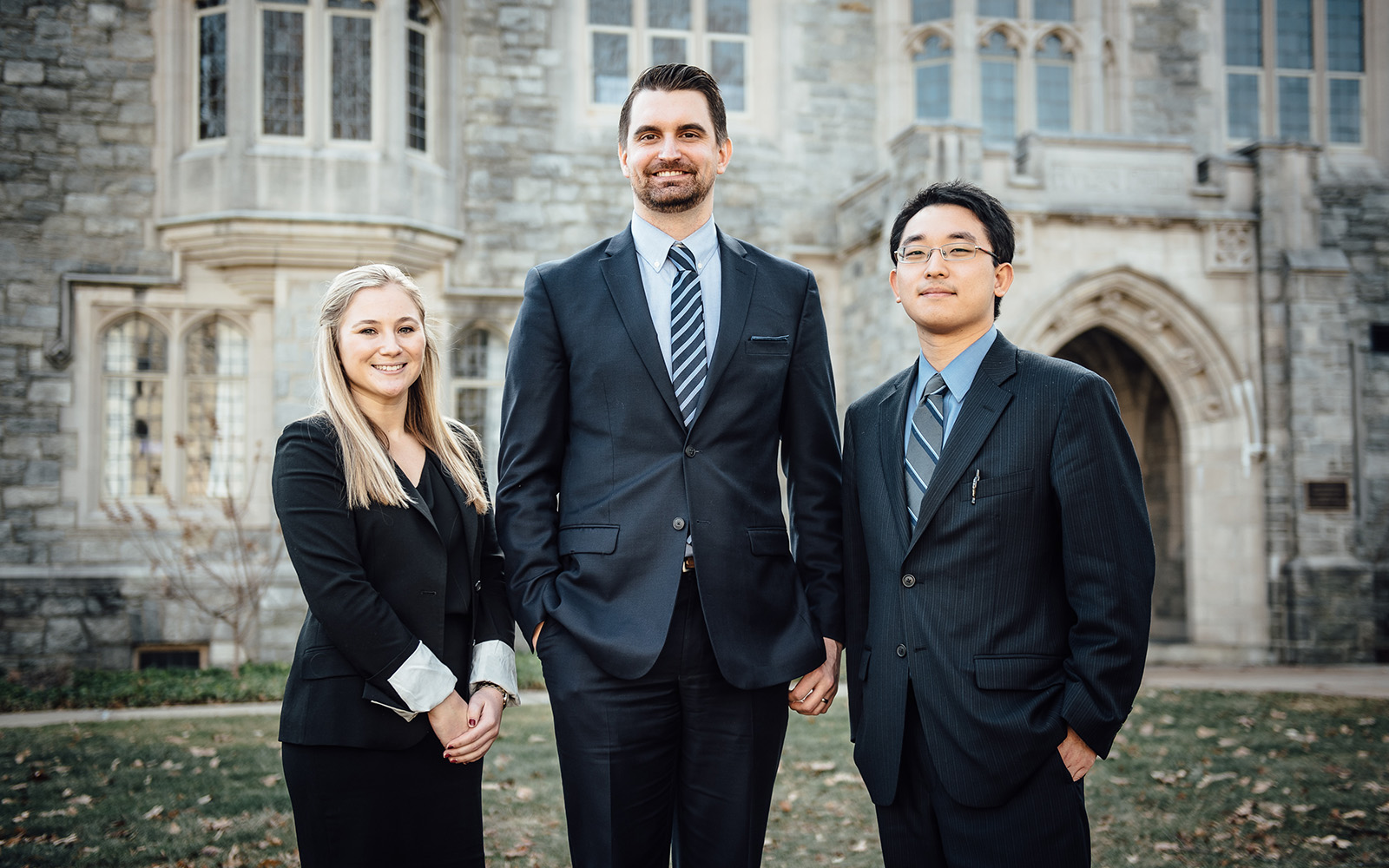Shree Reddy ’17 MSBAPM was the winner of a competitive McKinsey Online Analytics Hackathon last fall. McKinsey & Co. is one of the most well-known global management consultancy groups in the world. Continue Reading
Graduate Programs
Auriemma Leadership Conference Adds Speakers to Impressive Lineup

The Geno Auriemma UConn Leadership Conference has announced its full lineup of speakers for the April 17-18 event. Continue Reading
Dean Elliott Becomes Chair-Elect of AACSB International

John A. Elliott, dean of the UConn School of Business, has been elected vice chair/chair elect of AACSB International – The Association to Advance Collegiate Schools of Business, the ‘gold standard’ accrediting body for business schools. Continue Reading
MSBAPM Ranked 6th by Predictive Analytics Today

The MSBAPM program continues to receive recognition for excellence, with the latest achievement including a No. 6 ranking in the nation from the web site Predictive Analytics Today. Continue Reading
Creative Traffic Analysis Earns Grad Student Recognition
Graduate student Ankit Borkhataria ’17 MSBAPM took third place at the Tableau Student Viz Assignment Competition, which drew more than 100 submissions from 14 countries.
Winners were selected based on creativity, analytical depth, beauty and design and overall score.
“Ankit took a creative approach in wrangling a large data set with over 1 million rows of Montgomery County (Maryland) traffic violation data. The judges loved his choice of using a bold color palette and embedding Twitter feeds from @mcpnews and #mdtraffic,” Tableau posted in its announcement.
Joanne Crevoiserat ’85 Helping Revitalize Abercrombie & Fitch

(Abercrombie & Fitch Co.)
Spirit of Adventure
Joanne Crevoiserat ’85 sounds euphoric when she talks about the history of Abercrombie & Fitch Co., the American clothing company where she is celebrating one year as chief operating officer. Continue Reading
Accelerate UConn Spring 2018 Participants Announced
Accelerate UConn – Mostafa Analoui, Executive Director of Venture Development and Timothy B. Folta, Professor of Management and Faculty Director of the Connecticut Center for Entrepreneurship and Innovation, are pleased to announce the teams selected to participate in the sixth cohort of Accelerate UConn, the University’s National Science Foundation I-Corps site.
2018 Hall of Fame Inductees Announced

Four Alumni to be Recognized for Business Achievements, Community Service at Business School’s Premier Event
Four outstanding business leaders will be inducted in the UConn School of Business Hall of Fame on March 24. Continue Reading
Financial Times: UConn MBA No. 2 in Value for Money

2018 Global MBA Ranking Recognizes UConn’s Full-time MBA Program for Quality and Financial Value
Financial Times has ranked the UConn MBA program No. 2 in the nation for financial value, according to its 2018 rankings. Continue Reading
Negotiation Champs

MBA Candidates, Law Students Test Skills in Two-Day UConn Negotiation Challenge
MBA candidate Chris DiGiacomo is accustomed to negotiating project dates and deadlines through his job as a program management specialist at Pratt & Whitney. Continue Reading